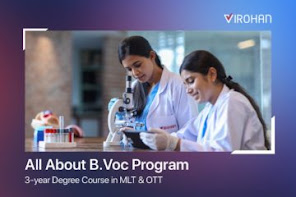Study Tips for Becoming a Phlebotomist
Phlebotomists are an essential part of the healthcare team. Their job is to draw blood from patients and test it for abnormalities. Phlebotomists work closely with patients, but they do not have the same responsibilities as nurses or doctors. As a result, phlebotomists must be able to understand instructions and follow them carefully. They also need analytical thinking skills so that they can problem solve and figure out solutions easily. Becoming a phlebotomist requires a lot of patience, dedication, and study time. You will need to learn about blood vessels, veins, and arteries. A phlebotomist's job description includes tasks like checking patient ID, operating instruments and equipment, maintaining logs and records, documenting findings, and sterilizing equipment after use. In addition to these responsibilities, you’ll also need to study tests on anatomy and physiology as well as blood types if you haven’t already done so in high school or college. Read on to learn more about what you’ll need to succeed in this rewarding career!
What does a phlebotomist do?
A phlebotomist removes blood from patients for analysis. Since blood tests are very common in healthcare settings, phlebotomists are very important in ensuring that samples are collected correctly and safely. Phlebotomists typically work in hospitals and doctors’ offices. They are not nurses, so they are not permitted to draw blood from patients’ veins. They are permitted to draw blood from arteries, however, which is why their job is often called venipuncture. Phlebotomists work in teams with other medical professionals, such as nurses, technicians, and medical assistants. A phlebotomist’s job duties usually include: - Assisting patients with collecting samples. This may involve taking blood pressure, administering pain medications, and providing instructions on how to best position yourself to be able to take the sample. - Assisting with drawing blood. This involves using a variety of devices to puncture the skin and draw out a sample of blood. - Storing and labeling samples appropriately. This may include using safety devices to prevent cross-contamination. - Communicating with patients about blood samples. This may include providing instructions for testing, answering questions about results, and documenting information about the samples.
Phlebotomist Course Eligibility
- Have completed class 12th from a recognized board with a minimum of 50% aggregate
- Some colleges allow only Science stream students to apply for the course, however some institutions like VIROHAN, offer these courses to students from all streams.
- Possess a motor vehicle driving license because apart from collecting biological samples at the center, it would be the responsibility of the phlebotomist to carry out home sample collection, label them accurately and also deliver samples within set time frames.
Tips for studying to be a phlebotomist
- You’ll need to study blood types, blood vessels, arteries, veins, and how blood is collected.
- You’ll also need to study sample types, such as blood, urine, and stool.
- You’ll need to study about the diseases that can be detected through blood tests. In addition to studying the subjects above, you’ll also need to study health laws and regulations. These laws are very specific, and you’ll need to know them inside and out so that you don’t break any regulations while at work.
- You’ll also need to be aware of HIPAA regulations, which protect the privacy of patient information.
- You’ll need to study safety, which involves wearing the correct gear and following safety precautions when performing certain tasks.
Conclusion
If you’re interested in a career as a phlebotomist, you’ll need to be sure that this career path is for you. You’ll need to be able to work in a team environment and follow instructions carefully. You’ll also need to be able to stay calm when dealing with patients who may be nervous or anxious. Phlebotomists who work in a medical setting must follow strict regulations, so you’ll need to be sure that you can commit to doing so. If you’re ready to commit to this career, make sure you’re ready to study hard and follow the best study tips.



Comments
Post a Comment